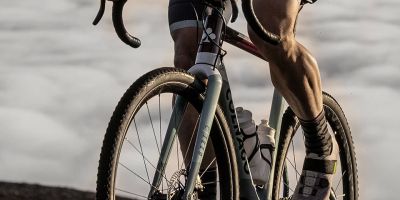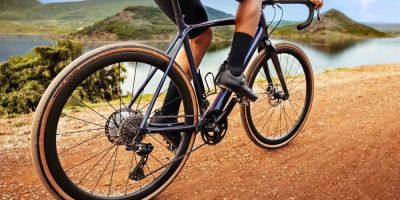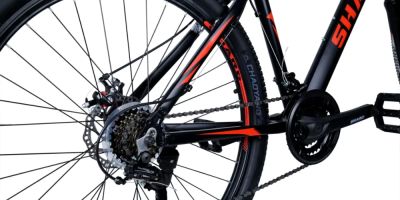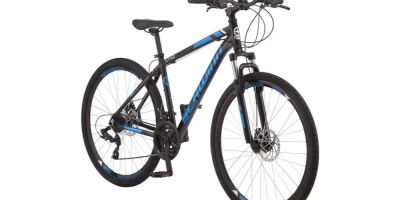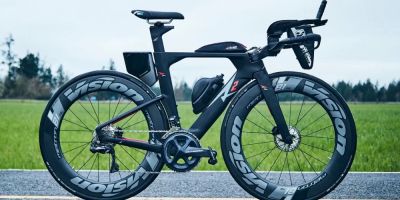Mountain Bike for Cross-Country Racing: Choosing the Right Bike for Your Race
If you're like me and you love the thrill of cross-country racing, you know that the right mountain bike can make all the difference. Having participated in a few races myself, I’ve learned that the bike you choose is just as important as the training and strategy you bring to the race. Cross-country racing demands a bike that’s lightweight, fast, and durable enough to handle all types of terrains—whether you're navigating rocky paths or speeding through forest trails. Over the years, I’ve tested and explored several bikes, and in this article, I’ll share my insights on what to look for when choosing a mountain bike for cross-country racing.

Mike's Bikes of Berkeley
1824 University Ave, Berkeley, CA 94703, USA
1. What Makes a Mountain Bike Perfect for Cross-Country Racing?
Cross-country racing isn’t just about speed; it's about endurance, agility, and precision. The bike needs to be optimized for all of these factors. When I first started racing, I didn’t realize just how much of an impact the bike could have on my performance. I quickly learned that cross-country racing bikes are designed with specific features that make them stand out from regular mountain bikes. Here are some key components to consider when choosing a bike:
- Lightweight Frame: Speed is essential in cross-country racing, and a lightweight frame allows you to conserve energy while maximizing performance. Most racing mountain bikes are made of materials like carbon fiber or aluminum, which offer strength without the extra weight.
- Suspension System: Cross-country terrain varies from smooth dirt paths to rocky, bumpy trails. Having a reliable suspension system helps smooth out rough terrain, allowing for better control and comfort. You’ll typically find either full suspension (both front and rear) or front suspension models, with the latter being lighter and ideal for smoother courses.
- Efficient Drivetrain: A bike with an efficient drivetrain is crucial for maintaining speed over long distances. Opt for a bike with a wide range of gears that can handle both steep ascents and fast descents. Over the years, I’ve come to appreciate the precision and performance of 1x drivetrains, which simplify gear shifts and reduce the weight of the bike.
- Tires: Cross-country racing bikes usually have thinner tires compared to downhill bikes, offering less rolling resistance and better speed. These tires are designed for a balance between traction and speed, allowing you to grip the terrain while maintaining high speeds.
2. Top Mountain Bikes for Cross-Country Racing
Now that we’ve covered the essential features, let’s dive into some of the top-rated mountain bikes that I recommend for cross-country racing. These bikes have all been tested by professionals and enthusiasts, and each one offers a combination of speed, durability, and comfort that makes them a top choice for competitive riders.

Mike's Bikes of Berkeley
1824 University Ave, Berkeley, CA 94703, USA
2.1 Trek Procaliber 9.8
The Trek Procaliber 9.8 is a standout in the cross-country racing world. I personally love how it combines a lightweight carbon frame with a smooth, responsive suspension system. The IsoSpeed decoupler at the rear helps to absorb shock without sacrificing speed, which is essential on uneven trails. The bike’s 1x12 drivetrain offers a wide range of gears, ensuring you can conquer both steep climbs and high-speed descents.
2.2 Specialized Epic Pro
If you’re looking for a bike with cutting-edge technology, the Specialized Epic Pro is an excellent choice. This bike features the Brain suspension technology, which automatically adjusts the rear shock depending on the terrain. Whether you're riding on a smooth path or tackling a rocky uphill, the bike adapts to provide the perfect balance between comfort and control. The carbon fiber frame is both lightweight and stiff, giving you the responsiveness needed for competitive racing.
2.3 Giant Anthem Advanced Pro 29
For those who prefer a full-suspension bike, the Giant Anthem Advanced Pro 29 is a fantastic option. I’ve had the chance to ride this bike on various terrains, and the performance has always impressed me. The Advanced-grade composite frame is incredibly strong yet lightweight, and the full suspension system is designed to keep you stable and in control through even the roughest sections of the course. It’s perfect for racers who want a bike that can handle anything the course throws at them.
3. Understanding the Geometry of Cross-Country Bikes
The geometry of your mountain bike plays a huge role in how it handles different terrains. As a racer, I’ve learned that understanding geometry can make a huge difference in how the bike feels during a race. Here’s a quick breakdown of how geometry impacts your performance:
- Head Angle: The head angle determines the bike’s steering responsiveness. Cross-country bikes typically have a steeper head angle, which allows for quicker handling, especially on tight turns. A steeper angle is ideal for the fast-paced nature of cross-country racing.
- Seat Tube Angle: The seat tube angle affects your riding position. A steeper seat angle places you in a more forward position, which is better for climbing steep hills. The geometry of the bike can greatly affect your comfort and power output during long races.
- Wheelbase: The wheelbase affects the bike's stability and handling. A shorter wheelbase allows for better maneuverability, while a longer wheelbase provides more stability at high speeds. Cross-country bikes typically strike a balance between these two factors for optimal performance.
4. Maintenance and Tuning Tips for Cross-Country Bikes
Having the right bike is just the beginning. To get the best performance out of your mountain bike, regular maintenance is crucial. Over the years, I’ve learned a few key maintenance tips that help keep my bike in top shape for races:
- Regular Chain Maintenance: Keep your chain clean and lubricated. A dry or dirty chain can cause shifting issues and reduce the efficiency of your bike. I clean and lubricate my chain after every ride, especially if the weather is wet or muddy.
- Brake Checks: Cross-country racing often involves steep descents, so having well-functioning brakes is essential. I always check the brake pads for wear and ensure the hydraulic brake system is working properly before any race.
- Suspension Maintenance: To maintain smooth handling, make sure to check your suspension regularly. Whether you have front suspension or full suspension, keeping it well-maintained ensures better control and comfort during races.
5. Conclusion: Choosing Your Perfect Cross-Country Racing Bike
Choosing the right mountain bike for cross-country racing is about finding the right balance between weight, suspension, geometry, and durability. Whether you’re a beginner looking to take your racing seriously or a seasoned racer aiming to gain an edge, the bikes mentioned here offer top-tier performance. Remember that every rider has their preferences, so it’s important to test out different models to find the one that suits your riding style and race goals. With the right bike and proper maintenance, you’ll be ready to take on any cross-country challenge that comes your way!

